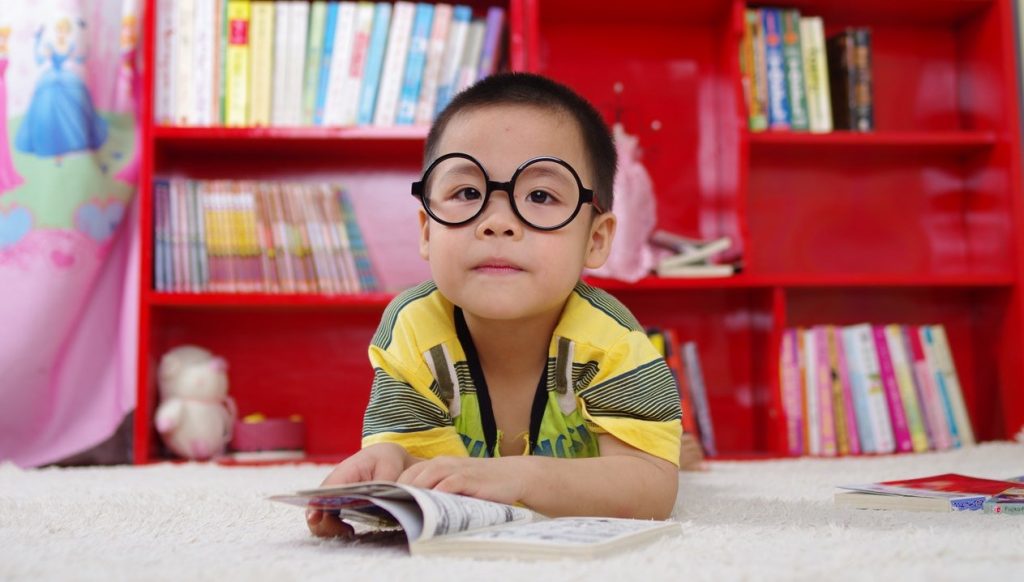Why emotions should be taught in schools rather than ignored & suppressed
(Collective Evolution | Arjun Walia) What exactly is education? Today, many view it as an opportunity to learn, thrive, and excel in the world. Others see it as a necessary step toward obtaining a piece of paper that ensures one’s entrance into the professional world. Regardless of your take on it, however, one thing is certain: From a very early age we are forced into a system that demands our presence and attention for hours a day and for years of our life. Each child is required to learn an accepted version of reality in order to fit into the specific mould desired by the elite. Just like television, a large part of school is simply programming, and we don’t really learn much about the world — or ourselves.
Our current education system
Perhaps this is why Mark Twain said, “I have never let me education interfere with my intelligence,” or why Einstein told the world to “never confuse education with intelligence,” and that “education is what remains after one has forgotten one has learned in school.”
School these days seems less about learning and more about rote memorization. Are we critically thinking enough, or questioning enough? Or are we simply being bred to become robots, all of us entering into the same human experience, “educating” ourselves in order to further perpetuate a broken system? We learn concepts and ideas that fit within the current paradigm and structure of society, but not about how to care for ourselves and become well-adjusted adults. Are we really being educated? Or simply groomed to become ‘good’ consumers?
“I don’t want a nation of thinkers, I want a nation of workers.”
– John D. Rockefeller
Another problem with the current education model, as pointed out by world renowned education and creativity expert Sir Ken Robinson, is that it was designed and conceived for a different age. Today, new information and discoveries are constantly emerging in all fields, questioning what we once thought we knew, and that includes how people learn. Unfortunately, unless you have an amazing teacher who is passionate about our world and new information, children suffer in this system.
In fact, prior to the late 1800s, education was a private practice that took place in private institutions or through home schooling. That all changed in 1902 when John D. Rockefeller created the General Education Board in conjunction with Frederick T. Gates, a close friend and business and personal advisor. The General Education Board was responsible for funding the American public school system, and provided over 100 million dollars in 1902 while continuing their support beyond 1902. If we follow the money, it becomes clear the general education board was responsible for the creation of the American public school system. Does education not play a large role in manipulating the consciousness of human beings?
“Knowledge has to come from somewhere, and that can’t be a classroom.”
Emotions in school
School is an experience primarily comprised of learning information — rarely questioning it, but rather taking it in as fact. While we learn about many subjects, very few of them have any real impact on our lives. There are absolutely no classes dealing with human emotions, for instance.
According to sociologist Thomas Scheff, a big supporter of emotional education from the University of California, many Western societies simply view emotions as an indulgence or a distraction, and less important than other things. And he’s right — we are often taught to bury our emotions so we can be more productive, and we are made to feel as though our emotions are not as relevant or important; they always seem to come secondary, if at all, especially within an educational setting. Scheff, among many others, believes that emotions provide valuable information, and yet we are taught not to listen to them. “Just as dangerous,” Scheff said, “is the practice of hiding one emotion behind another.” He has found that “men, in particular, tend to hide feelings of shame under anger, aggression and, far too often, violence.”
Many of the issues and problems that arise in our lives stem from the fact that we really have no idea how to process or address our emotions. As a result of this lack in our education, a child who has not paid any attention to their emotional body develops bad habits and behaviours to compensate, until they learn how to properly process their emotions, if they ever do.
How do we go about doing this?
The good thing about teaching emotions is, they can be implemented into any class and any grade. For example, if you were trying to teach emotions in a class with a number of kids who are about to graduate high school, a great starting point might be to illustrate just how much of an effect emotions can have, not just on a mental level, where unresolved emotions lead to negative action, but on a physical level as well. The Institute of Noetic Sciences is doing some great work in this area, creating more awareness about non-material science and how our thoughts/emotions have an observable effect on physical material reality. The mind-body connection is truly powerful, and we should be teaching people how to harness that power.
An internationally recognized nonprofit research and education organization, the Institute of HeartMath dedicates itself to helping people reduce stress, self-regulate emotions, and build energy and resilience for healthy, happy lives. HeartMath tools, technology, and training teach people to rely on the intelligence of their hearts in concert with that of their minds at home, school, work, and play. They’ve discovered that emotional information is “actually coded and modulated” into the magnetic field that surrounds all living things.
As HeartMath Director of Research Dr. Rolin McCratey tells us, “By learning to shift our emotions, we are changing the information coded into the magnetic fields that are radiated by the heart, and that can impact those around us. We are fundamentally and deeply connected with each other and the planet itself.”
Source: Collective Evolution
You may also like:
Children need microbes — not antibiotics — to develop immunity, scientists say




